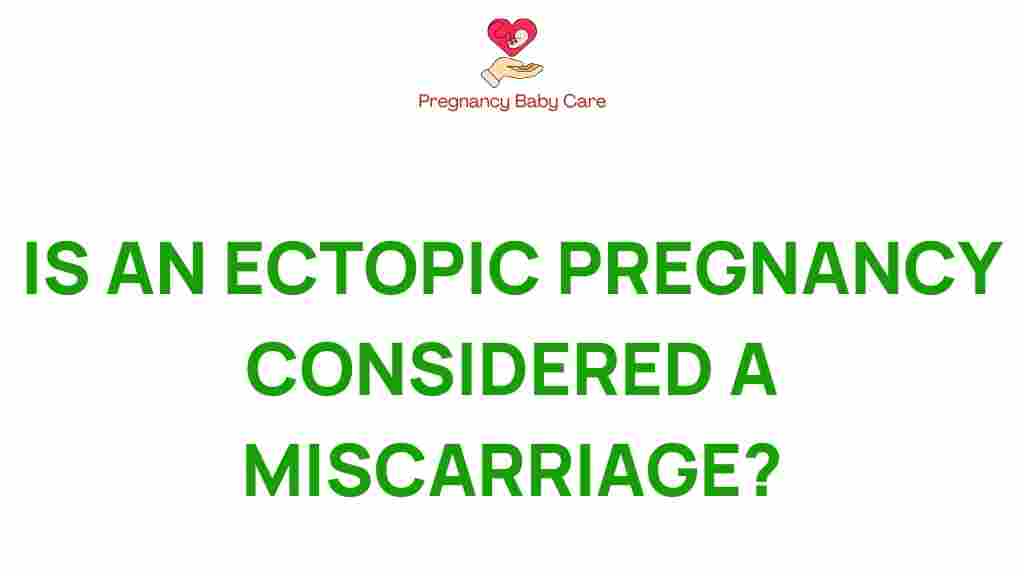Is an Ectopic Pregnancy a Miscarriage?
Understanding the nuances of reproductive health is crucial for women, especially when it comes to pregnancy-related complications. Two terms that often create confusion are “ectopic pregnancy” and “miscarriage.” While both involve the loss of a pregnancy, they are fundamentally different in terms of medical definitions and implications for women’s health. In this article, we will unpack the distinctions between ectopic pregnancy and miscarriage, delve into their medical definitions, and highlight the importance of healthcare awareness and patient education in gynecology.
What Is an Ectopic Pregnancy?
An ectopic pregnancy occurs when a fertilized egg implants outside the uterus, most commonly in the fallopian tubes. This type of pregnancy cannot progress normally as the fallopian tubes are not equipped to support fetal development. Here are some key points regarding ectopic pregnancies:
- Location: Ectopic pregnancies usually occur in the fallopian tubes, but can also happen in the cervix, ovaries, or abdominal cavity.
- Symptoms: Symptoms may include sharp abdominal pain, vaginal bleeding, and, in severe cases, shoulder pain or fainting due to internal bleeding.
- Diagnosis: Diagnosis is typically made through a combination of pelvic exams, ultrasounds, and blood tests to measure hormone levels.
What Is a Miscarriage?
A miscarriage, also known as spontaneous abortion, is defined as the loss of a pregnancy before the 20th week. It is a more common occurrence compared to ectopic pregnancies. Here are some important aspects of miscarriages:
- Timing: Most miscarriages happen in the first trimester, often due to chromosomal abnormalities.
- Symptoms: Symptoms include vaginal bleeding, cramping, and the passing of tissue.
- Diagnosis: A miscarriage is typically diagnosed through ultrasound or pelvic examination.
Key Differences Between Ectopic Pregnancy and Miscarriage
Understanding the differences between ectopic pregnancy and miscarriage is vital for effective patient education in gynecology. Here are the primary distinctions:
- Location of Implantation: An ectopic pregnancy occurs outside the uterus, while a miscarriage occurs within the uterus.
- Pregnancy Viability: Ectopic pregnancies are non-viable and pose serious health risks, whereas miscarriages may still allow for future pregnancies.
- Management: Ectopic pregnancies often require medical intervention, such as surgery or medication, while miscarriages may not require treatment unless complications arise.
Medical Definitions and Implications
To further clarify, let’s explore the medical definitions associated with ectopic pregnancy and miscarriage:
- Ectopic Pregnancy: Defined as the implantation of a fertilized egg outside of the uterine cavity.
- Miscarriage: Defined as the spontaneous loss of a pregnancy before the 20th week, generally associated with chromosomal issues.
The implications for women’s health can be significant. Ectopic pregnancies can lead to life-threatening complications if not treated promptly, whereas while miscarriages are emotionally challenging, they typically do not pose immediate health risks beyond the miscarriage itself.
Causes of Ectopic Pregnancies
Understanding the causes of ectopic pregnancies can enhance healthcare awareness and improve patient education. Some common factors include:
- Previous Ectopic Pregnancy: A history of ectopic pregnancies increases the risk of recurrence.
- Pelvic Inflammatory Disease (PID): This condition can damage the fallopian tubes.
- Endometriosis: This disorder can lead to scarring and blockages in the reproductive tract.
- Fertility Treatments: Certain fertility treatments can increase the likelihood of ectopic implantation.
Causes of Miscarriages
Miscarriages can occur for a variety of reasons, many of which are beyond a woman’s control. Some common causes include:
- Chromosomal Abnormalities: The majority of miscarriages are due to genetic issues.
- Hormonal Imbalances: Issues like low progesterone can affect pregnancy viability.
- Uterine Abnormalities: Abnormalities in the uterus can hinder implantation or growth.
- Age: The risk of miscarriage increases with maternal age, particularly after age 35.
Symptoms to Watch For
Early detection of issues during pregnancy is essential for both ectopic pregnancies and miscarriages. Here are some symptoms to be vigilant about:
Symptoms of Ectopic Pregnancy
- Sharp or stabbing pain in the abdomen or pelvis.
- Vaginal bleeding that differs from a typical menstrual period.
- Dizziness or fainting, which may indicate internal bleeding.
Symptoms of Miscarriage
- Heavy bleeding that may include clots or tissue.
- Severe cramping or abdominal pain.
- Sudden decrease in pregnancy symptoms like nausea or breast tenderness.
Healthcare Awareness and Patient Education
Healthcare awareness is crucial, especially in reproductive health. Women should be educated about the signs and symptoms of both ectopic pregnancies and miscarriages. Here are some tips for patient education:
- Regular Check-ups: Encourage women to have regular gynecological exams, especially if they are trying to conceive.
- Know Your Body: Women should be aware of what is normal for them and report any changes to their healthcare provider.
- Seek Immediate Care: Advise women to seek immediate medical attention if they experience any concerning symptoms during pregnancy.
For more detailed information on reproductive health, refer to resources such as WomensHealth.gov.
Conclusion
In conclusion, while both ectopic pregnancy and miscarriage involve the loss of a pregnancy, they are distinct conditions with different implications for women’s health. Understanding these differences is crucial for healthcare awareness and effective patient education in gynecology. By fostering awareness and encouraging women to be proactive about their reproductive health, we can help empower them to seek timely medical care and support during these challenging times.
For further reading on pregnancy complications and reproductive health, visit this resource.
This article is in the category Pregnancy and created by PregnancyBabyCare Team
